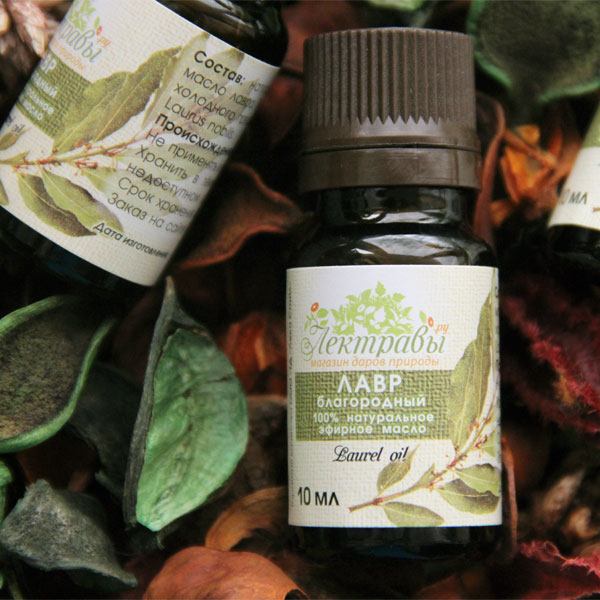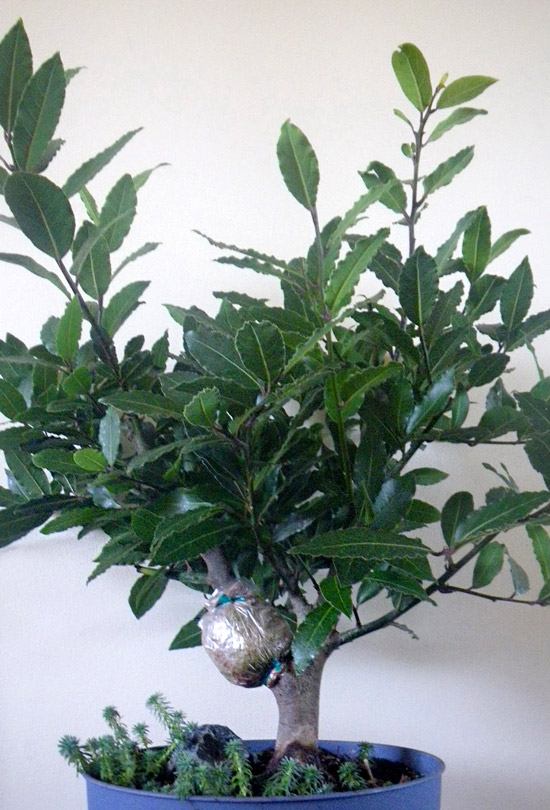Thanks to its unique chemical composition , laurel has been popular for several millennia. Laurel was used in medicine by Hippocrates and Galen, as well as by ancient Arabs.
Treatment with laurel in folk medicine is effective for poisoning, as an anti-parasitic, for menstrual cramps, for antifungal purposes, for excessive sweating of the feet, rheumatism, and colds.
Laurel steam baths for the face will open the pores and disinfect them. Laurel restores strength and boosts mood.

The bark and twigs of laurel are used to wash out sand and stones from the kidneys and gallbladder. Fatty laurel oil , obtained from fresh seeds, is rubbed into the joints for rheumatism, gout, salt deposits, eczema, and scabies.
With laurel oil, ointments for lice and scabies mite are made.
Laurel is used for angina; it kills intestinal and tuberculosis bacteria, as well as other bacteria and viruses.
Recipes:
Laurel oil for joints. 30 grams of ground laurel leaves are infused in 200 milliliters of any vegetable oil for 3 to 10 days. This oil should be rubbed into the joints.
Laurel pot by the bed prevents migraine attacks. You can add myrrh and eucalyptus leaves to such a pot.
Laurel for otitis is taken as follows: 5 grams of leaves are boiled in 200 ml of water over low heat for 2 hours. A few drops of the decoction should be dripped into the ear, and 2-3 tablespoons of the decoction should be taken orally. Repeat the procedure 2-3 times.
For cholecystitis: 10-15 drops of laurel oil in milk, tea, or kefir 2-3 times a day.
Allergy to medical preparations can be treated with laurel oil - 5 drops on a piece of sugar half an hour before meals.
Contraindications: pregnancy, lactation. Overdose may cause poisoning.
You can grow laurel in a pot at home.



